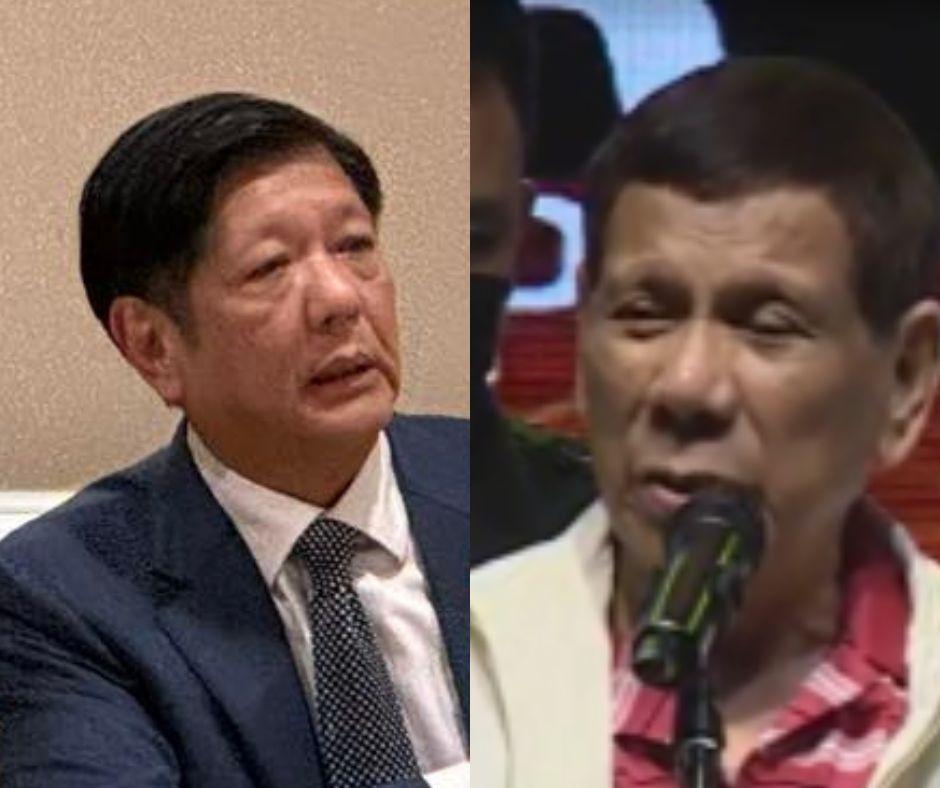Headline: Marcos Declines to Discuss Duterte’s Drug War Admissions Amid Crisis
Marcos Avoids Duterte Drug War Questions, Focuses on Aid Distribution
President Ferdinand "Bongbong" Marcos Jr. sidestepped inquiries regarding former President Rodrigo Duterte‘s controversial admissions about the drug war during a Senate inquiry. On Monday, while in Batangas to oversee the distribution of aid following Severe Tropical Storm Kristine, Marcos emphasized the importance of addressing immediate humanitarian concerns over discussing Duterte’s past actions. His decision comes amidst renewed debate about the implications of Duterte’s approach to the drug war, particularly the allegations surrounding extrajudicial killings.
The Context of the Inquiry
In a recent Senate hearing, Duterte made startling admissions pertaining to his administration’s aggressive anti-drug campaign, which has drawn international criticism for its alleged brutality. Among the revelations, Duterte disclosed the existence of a so-called "death squad," comprised not of police officers but of individuals he referred to as "gangsters." He articulated his strategy of sparing police from the repercussions of these actions, suggesting that they were tasked with provoking violence from drug suspects to justify lethal force.
During discussions with reporters, Marcos was asked to reflect on Duterte’s statements and whether the Department of Justice should reconsider its investigations into the drug war. The President, however, quickly interjected to steer the conversation towards the ramifications of Severe Tropical Storm Kristine on Batangas communities, stating, “I don’t want to talk about — I need to talk about what’s happened here.”
Severe Tropical Storm Kristine: Focus on Recovery
Marcos’s visit to Batangas aimed to provide essential relief to communities grappling with the devastation caused by Kristine. The storm has wreaked havoc, prompting significant concern over public safety and infrastructure. Marcos’s immediate engagement reflects a commitment to disaster response, prioritizing the welfare of affected individuals.
While he remains hesitant to engage with the politically charged ramifications of Duterte’s drug war, the need for humanitarian aid in the wake of natural disasters has pushed such discussions to the backburner.
The Repercussions of Duterte’s Admission on the Drug War
Duterte’s remarks about his drug war have reignited debates about accountability within the Philippine government. His acknowledgment of controlling influential criminal groups while maintaining a hands-off approach for police involvement raises ethical concerns about law enforcement and systemic violence.
As legal experts and human rights advocates call for increased scrutiny, the potential for renewed investigations into the drug war looms. Duterte has claimed to take "full, legal responsibility" for the actions taken during his presidency, but responses from the current administration remain undefined.
The impact on the technology sector is noteworthy as well, particularly concerning the way data and surveillance technology were employed during the anti-drug operations. Should reinvestigations take place, insights into these technologies might lead to a broader understanding of their application in law enforcement and public safety.
Public Discourse and Future Implications
As the conversation around Duterte’s drug war continues, the interplay between disaster response and political accountability remains a focal point for the Marcos administration. The handling of the aftermath of Severe Tropical Storm Kristine could impact public perception of leadership in the Philippines, especially as challenging topics arise.
In terms of community sentiment, the public response to Marcos’s prioritization of immediate relief efforts over potentially polarizing political discussions may shape future dialogues. Technology enthusiasts and professionals should keep an eye on how the government will leverage technological solutions to address not only disaster resiliency but also the implications of artificial intelligence and data privacy in law enforcement.
Engaging in dialogue about the effectiveness of responses to such crises can foster resilience in the face of future challenges.
What are your thoughts on the implications of Duterte’s admissions and Marcos’s response? How should the government balance immediate humanitarian needs with calls for accountability? Share your views and let’s engage in a productive discussion.
For more details on the evolving situation regarding the drug war, visit GMA Integrated News or check out the latest analyses on platforms like TechCrunch and Wired.
Stay tuned to Shorty-News for ongoing updates regarding both humanitarian efforts and the political landscape in the Philippines.


![[속보] President Yoon “Complete the four major reforms no matter what difficulties”…Prime Minister reads the administration speech [속보] President Yoon “Complete the four major reforms no matter what difficulties”…Prime Minister reads the administration speech](https://img.khan.co.kr/news/2024/11/04/rcv.YNA.20241104.PYH2024110403450001300_P1.jpg)